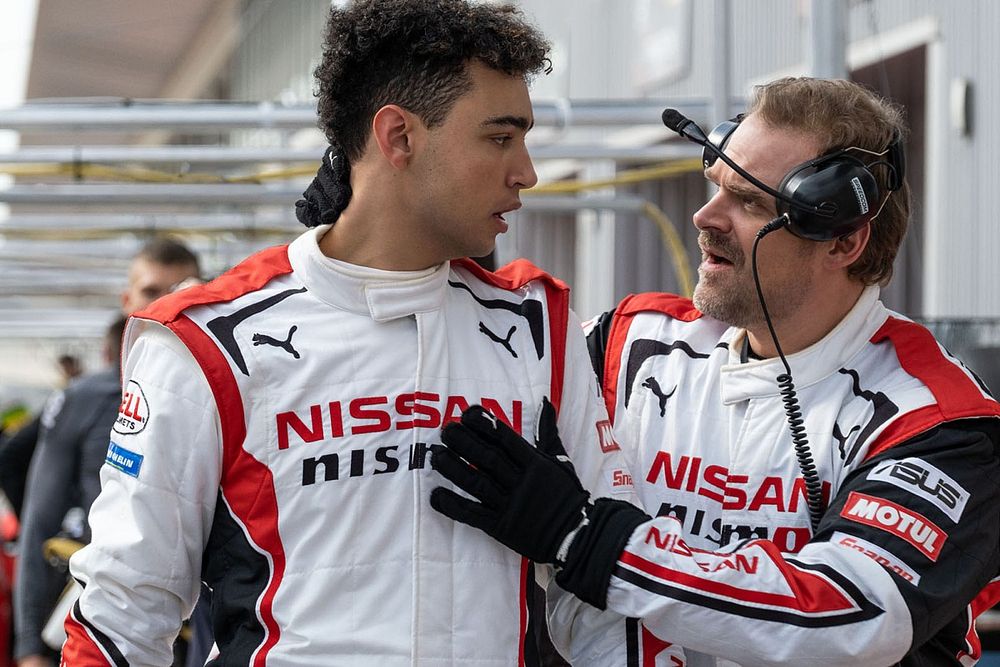
The subtitle “based on a true story” tends to be a vapid marketing ploy—a phony assertion of honesty in a medium grounded in trickery—but in the case of Gran Turismo, you can understand the appellation. The narrative arc of this movie—about a videogame wiz who transformed his joystick-tugging prowess into professional success as a bona fide race-car driver—is so improbable, audiences would deride it as ludicrous if they weren’t assured it actually happened. The screenplay, by Jason Hall (American Sniper) and Zach Baylin (King Richard), has taken considerable liberties with the factual record, but its overall thrust remains accurate: In 2011, a 19-year-old PlayStation guru named Jann Mardenborough pivoted from console to racetrack, winning an academy competition and earning a “drive” on Nissan’s motorsports team.
Directed by Neill Blomkamp, Gran Turismo follows the sports-picture playbook with sturdy competence and comforting predictability. This, naturally, places it in ironic tension with its own central theme: that Jann’s true story is an anti-establishment triumph in which raw talent and radical innovation combine to defeat the mighty powers of orthodoxy and tradition. It’s a racing movie where the number of RPMs is topped only by the volume of cinematic clichés.
This is a matter of both plot and character. The story beats of Gran Turismo—the early victory, the training montage, the mid-film setback, the big-game finale—are instantly familiar (which is part of what makes them satisfying). And the people who embody this recognizable journey are sharply carved from a colorful piece of screenwriting cardboard. The cocky upstart, the crusty mentor, the disapproving father, the preening villain, the token love interest—they’re all here, and all deployed exactly as you’d expect.
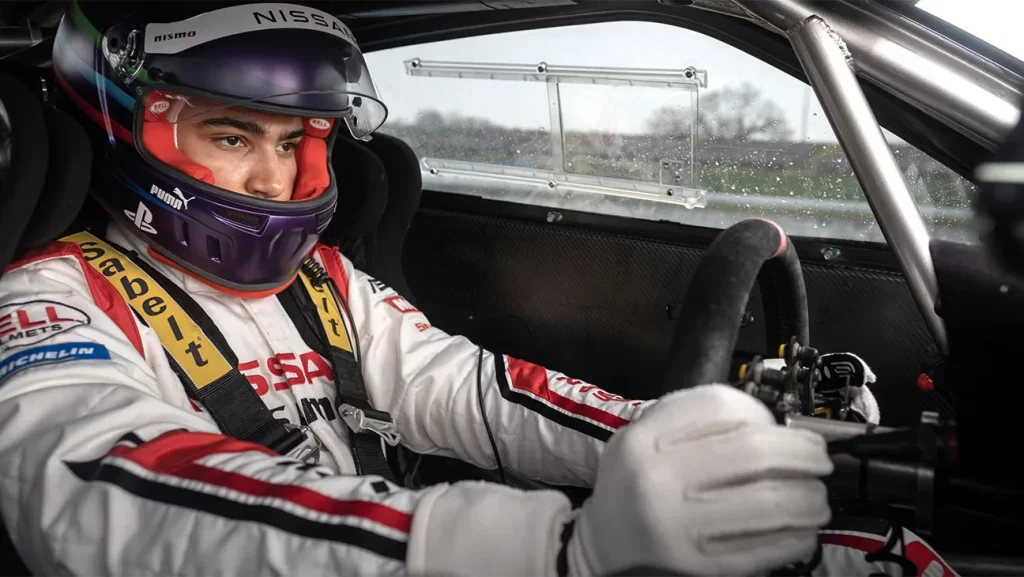
This rigorous conventionality—the sense of carefully following a predetermined course rather than traveling someplace new—isn’t without its corresponding pleasures. Gran Turismo isn’t an especially good or even interesting movie, but it is a reasonably enjoyable one. Its diversions stem from watching Blomkamp and his actors attempt to imbue such a boilerplate production with scraps of color and personality.
This is most obvious, and most challenging, in the racing scenes themselves. The fan’s view of auto racing would seem to lend itself to big-screen excitement—what power! what speed!—but the perspective of the driver is less thrilling. Jann, played with suitable pluck by Archie Madekwe (Mardenborough himself served as his driving double), performs his feats of on-track athleticism by doing exactly what he did when he played videogames in front of his TV: He plops himself in a seat and looks straight ahead. That parallel, of course, is the whole point of Gran Turismo, but it doesn’t change the fact that the sport’s physical mechanics—the yanking of sticks, the jerking of wheels, the mashing of pedals—are less than dynamic.
Still, Blomkamp—who broke out with District 9 before losing his way with Elysium—does his best. He cuts across different vantages with sensible rhythm, allowing us to perceive Jann’s position relative to his competitors with passable clarity. (Announcers often supplement this visual information with painfully obvious commentary—“Lovely pass there from Mardenborough!”—telling us what we’ve just been shown.) And he playfully dips into gamer aesthetics, often superimposing a label on Jann’s Nissan to signify his place (akin to an on-screen life meter) or displaying dotted lines to indicate the ideal trajectory. There are times when he gets too cute, as in an early scene on the streets of Wales when Jann’s evasion of police officers is heralded with the kitschy graphic, “Cop Avoidance!” On the whole, though, the vroom-vroom sequences here aren’t appreciably inferior to those of Best Picture nominee Ford v Ferrari.
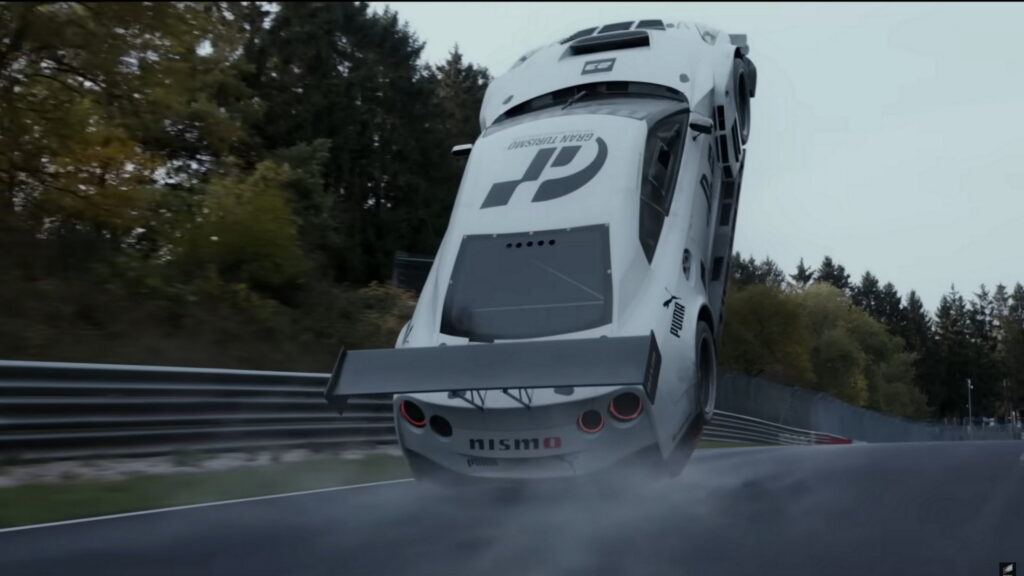
If anything, the racing scenes feel less mechanical, less engineered, than the movie’s plotting and characterizations. Jann’s ascent is shepherded by a pair of industry veterans who are technically on the same side but are nevertheless temperamental opposites. The first is Danny Moore (Orlando Bloom), the Nissan executive who develops the “GT Academy” as a way to reach the untapped, apparently lucrative market of zealous gamers fixing for a shot on the circuit. Moore fancies himself a maverick, but he is really a company man—a cautious middle manager motivated by profits and concerned with appearances. This places him in marked contrast to the deliciously named Jack Salter (David Harbour), the former racer charged with readying Jann and his fellow “simulator” enthusiasts for the real thing. A born skeptic, Salter regards Moore’s plan as a pitiful gimmick, insisting that no nerdy teenager could ever survive—figuratively and perhaps literally—at the helm of a zooming four-wheeled locomotive.
If you had any doubt which of these elder statesmen is more likable or trustworthy, it is instantly resolved by their casting. Bloom will always be associated with the Lord of the Rings pictures, but while his Legolas was a selfless hero, there was always something a bit snobbish about his perfection, making the actor a natural fit for Moore, a decent-seeming chap who’s fundamentally wormy. Harbour, on the other hand (and as he’s shown on Stranger Things), makes unruliness authoritative; Salter is right about virtually everything, in part because he expends little energy trying to prove it.
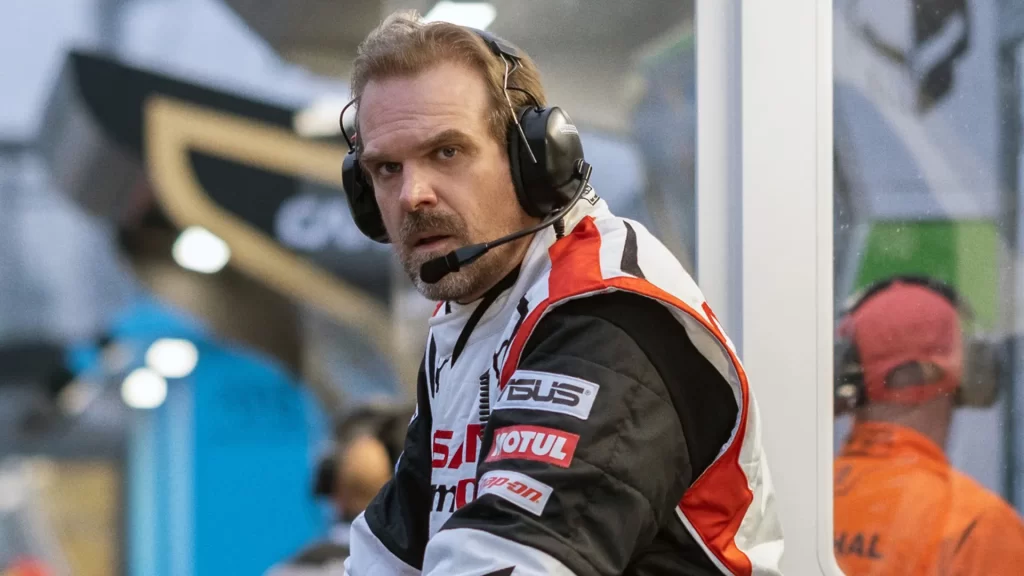
Salter is no more three-dimensional than anyone else in Gran Turismo, but he’s fun to be around, and the grudging bond that he and Jann inevitably form is undeniably appealing. The same can’t be said of the film’s remaining characters. Jann picks up a girlfriend (Maeve Courtier-Lilley), who seems to have no personal life outside of answering the phone when he calls. He also has a father (an unfortunate Djimon Hounsou), whose grouchy objections to his son’s passion are so generic, they could have been scripted by an algorithm. And he theoretically has a rival, a spiteful pretty boy (Josha Stradowski) who is simply a patrician avatar of moneyed superiority designed to clash with Jann’s gritty, blue-color heroism.
Perhaps Gran Turismo felt obligated to churn out these assembly-line figures in order to subliminally underline its premise—that a simulation of reality can be just as persuasive as the genuine article. If it succeeds, it does so through a weird trick of accidental inversion: The movie is more fun to watch than the game is to play. I recall renting the disc some decades ago and being frustrated by its grounded quality, its stubbornness. Who the hell wants to play a racing game where they constantly need to hit the brakes? Blomkamp’s “adaptation” has the decency to be artificial and corny, bypassing real emotions and conflict in favor of counterfeit suspense (each of Jann’s races seems to be decided by one hundredth of a second) and dubious motivational speeches.
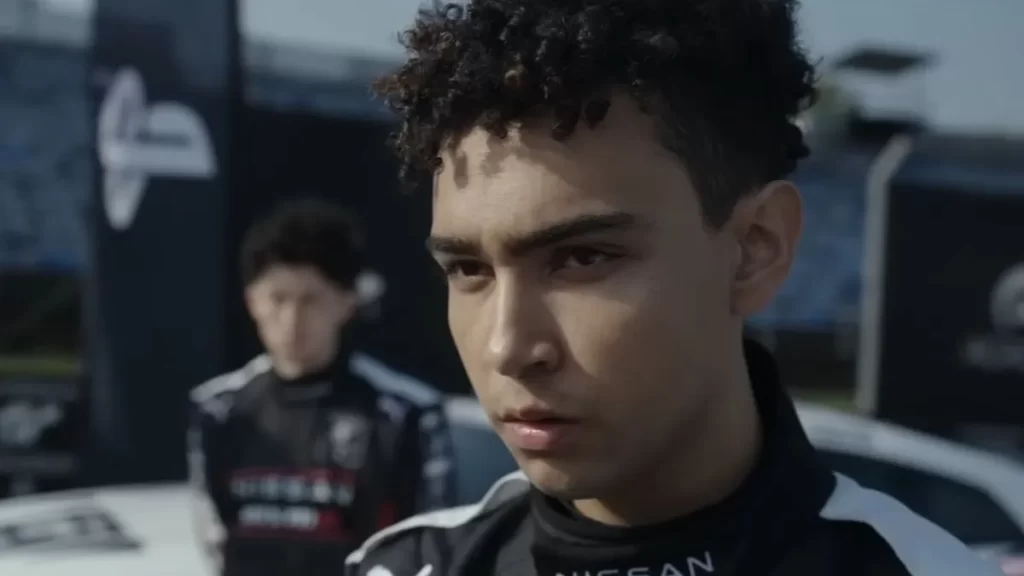
This means that Gran Turismo never works as drama. It gestures toward a vague subplot, in which Moore frets about the gawky Jann’s lack of press-ready polish, only to discard it, while it takes its most putatively intense sequence—a tragic (and chillingly rendered) crash—and awkwardly molds it into a source of inspiration. But as a hangout picture, it’s amiable. Salter is as experienced as Jann is green, yet they find kinship in their shared status as outsiders, and there’s satisfaction in watching them collaborate to upend a rigid hierarchy.
Which the movie itself never tries to do. It sprinkles in a few thoughtful details, such as how Jann’s pre-race ritual involves listening to Kenny G, but it lacks the audacity of a true disruptor; it wants to break into the sports-melodrama club, not burn it down. This doesn’t make it bad, but it does remind you that you’ve played this game before. And so, Gran Turismo’s most powerful argument winds up being inadvertent: It proves that, when it comes to racing movies, Hollywood needs to hit the reset button.
Grade: C+
Jeremy Beck is the editor-in-chief of MovieManifesto. He watches more movies and television than he probably should.
